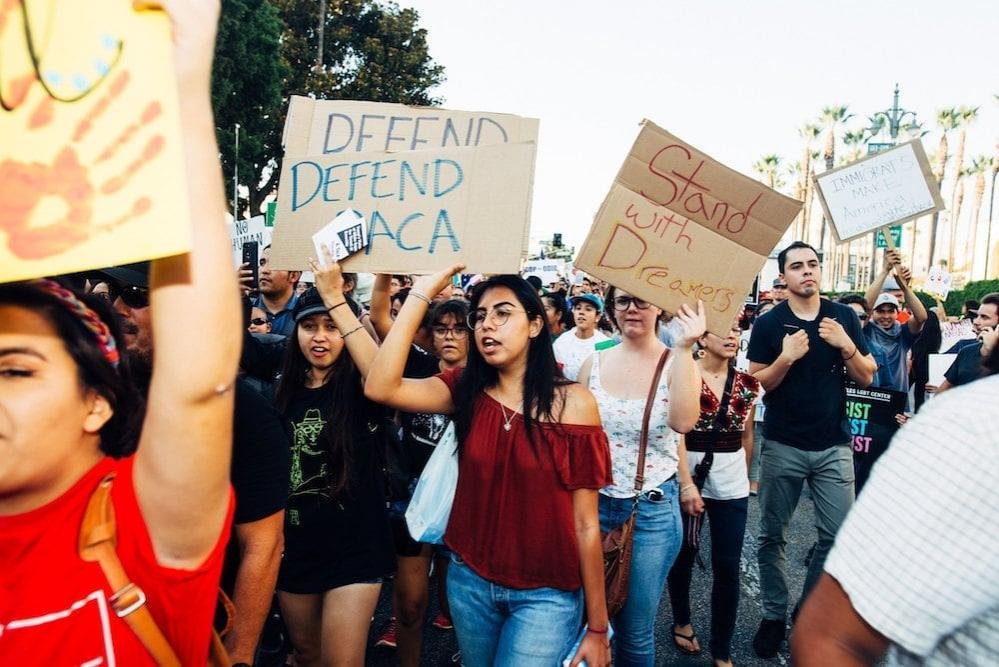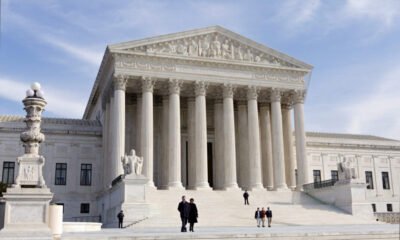border
Appeals Court Stirs Controversy with New DACA Ruling

A federal judicial panel within the conservative Fifth Circuit Court of Appeals raised significant concerns Thursday regarding a lower court’s recent decision to suspend the Deferred Action for Childhood Arrivals (DACA) program. This Obama-era immigration initiative has provided relief to many young immigrants since its inception.
Judge Stephen A. Higginson, a Barack Obama appointee, led the panel’s inquiries, referencing the U.S. Supreme Court’s ruling in United States vs. Texas. The Supreme Court had concluded that states lack the authority to challenge federal immigration policies, a fact that seemed central to the panel’s deliberations.
Higginson highlighted the Supreme Court’s 2023 decision, which strongly criticized the Fifth Circuit for permitting district courts to interfere with federal immigration policymaking without evidence of judicial authority to do so historically. He noted the complexity introduced by the Supreme Court’s failure to clearly define what would qualify states for legal standing in such cases.
The deliberations centered around whether states could claim indirect damages from DACA recipients accessing taxpayer-funded services like healthcare and education. Higginson suggested that while states may have a limited avenue for asserting these claims, it was significantly narrowed by the recent Supreme Court precedent.
Attorney Brian Boynton, representing federal defendants, contended that Texas’ legal arguments were weakened by the lack of compelling evidence linking DACA to increased state expenditures. “The fiscal injuries that Texas points to have no direct tie to DACA,” he asserted, expressing skepticism over Texas’s claim that revoking DACA would lead to a population decrease and thus lower costs.
DACA currently benefits over 535,000 young immigrants and approximately 250,000 of their dependent children, with a notable concentration of recipients in Texas. The program was established by President Obama in 2012 through executive order following the failure of comprehensive immigration legislation in Congress. It allows individuals under 31, who meet specific criteria, to live, work, and study in the United States for two-year increments, subject to renewal. However, the program does not provide a path to citizenship.
In September 2023, U.S. District Judge Andrew Hanen ruled the program illegal, although he allowed current recipients to remain in the U.S. until their eligibility expired, pending an appeal’s outcome.
During the hearing, Judge Edith Brown Clement inquired whether any ruling should restrict its jurisdiction to Texas alone. Boynton responded that any legal action should allow the Department of Homeland Security (DHS) to dismantle DACA systematically rather than through judicial mandates.
Texas Attorney Joseph N. Mazzara urged the panel to uphold the lower court’s decision while dismissing the relevance of the Supreme Court’s immigration priorities ruling. Despite acknowledging the broader implications of the panel’s affirmation, he stated that the case was a direct challenge to DACA rather than to federal immigration enforcement.
Outside the courtroom, numerous DACA recipients and advocates gathered to support the program. Andrea Tecpoyotl Tepale, a beneficiary of DACA, emphasized the program’s impact on her life. She is a college graduate and a mother, grappling with uncertainty stemming from ongoing legal challenges. “There’s a lot at stake,” she remarked, underlining the contributions of DACA recipients to the country.
As the legal battle continues, the ramifications for DACA recipients and the broader immigration landscape remain uncertain.


















